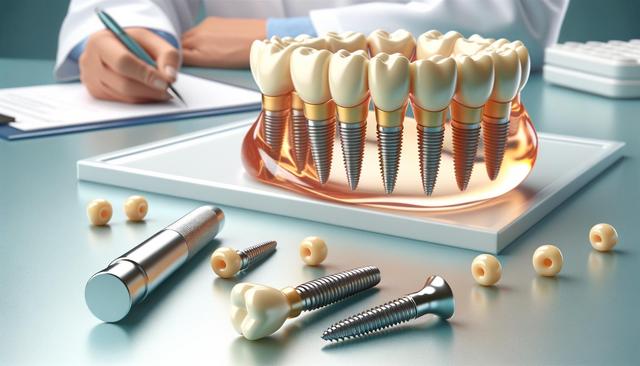Understanding Dental Implants and Their Benefits
Dental implants are artificial tooth roots typically made from titanium, designed to fuse with the jawbone and provide a stable foundation for replacement teeth. They are often used to replace one or more missing teeth and have become a popular alternative to traditional dentures or bridges. One of the primary advantages of dental implants is their durability and natural appearance. Unlike removable dentures, implants remain securely in place and help preserve bone structure by stimulating the jawbone.
Some key benefits of dental implants include:
- Improved speech and comfort compared to dentures
- Enhanced appearance and confidence
- Long-term durability with proper care
- Better oral health and hygiene maintenance
While implants were once considered a luxury treatment, advancements in dental technology and more providers offering competitive pricing have made affordable dental implants a practical option for many individuals.
What Influences the Cost of Dental Implants?
The cost of dental implants often varies depending on several factors. Understanding these elements can help patients make informed decisions and find affordable options that still meet their needs. Some of the most common factors that affect the price include:
- The number of implants needed
- The type of implant and restoration (e.g., crown, bridge, or denture)
- The condition of the jawbone and whether bone grafting is required
- The geographic location of the dental clinic
- The experience and qualifications of the dental professional
In many cases, dental clinics offer flexible payment plans or work with financing companies to make the procedure more accessible. Patients are encouraged to get multiple quotes and ask detailed questions about what is included in the price to avoid unexpected charges.
How to Find Affordable Dental Implant Services
Finding affordable dental implant services requires a bit of research, but the effort can lead to significant savings. Many dental practices recognize the demand for budget-friendly care and are transparent about their pricing structures. Here are a few tips for locating more affordable options:
- Compare prices and services from several dental clinics in your area
- Look for dental schools that offer supervised procedures at reduced costs
- Explore dental tourism in reputable countries known for high-quality care
- Check for seasonal promotions or new patient discounts
It’s important to balance cost with quality. While affordability is crucial, ensuring that the provider uses certified materials and follows proper protocols will help avoid complications and additional expenses in the future.
What to Expect During the Dental Implant Process
Understanding the dental implant procedure can help patients feel more comfortable and prepared. The process typically involves several stages, with healing time in between. Here’s what to generally expect:
- Initial Consultation: An evaluation including X-rays and a dental exam to determine candidacy
- Implant Placement: The implant is surgically inserted into the jawbone under local anesthesia
- Healing Period: Osseointegration (bone fusion) takes place over several months
- Abutment Placement: A small connector is attached to the implant
- Final Restoration: A crown, bridge, or denture is placed on the abutment
Patients should follow post-operative care instructions carefully and attend follow-up visits to ensure the implant is healing properly. The total treatment timeline can vary but often spans several months. Despite the time investment, many patients find the outcome well worth the wait.
Maintaining Your Dental Implants for Long-Term Value
Once dental implants are in place, maintaining them is essential for ensuring their longevity and continued function. Although implants are resilient, they still require the same level of care as natural teeth. Establishing good oral hygiene habits can help prevent complications such as gum disease or implant failure.
Recommended maintenance practices include:
- Brushing and flossing daily to remove plaque and food debris
- Using non-abrasive toothpaste and soft-bristled brushes
- Scheduling regular dental checkups and cleanings
- Avoiding smoking, which can impair healing and bone integration
Additionally, patients should report any discomfort or changes to their dentist promptly. With consistent care, dental implants can function effectively for many years, making them a sound investment in oral health.




Leave a Reply